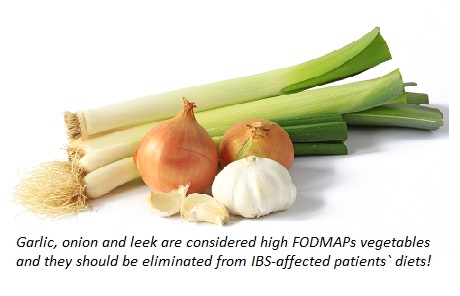Irritable bowel syndrome (IBS) is a functional bowel disorder of the GI system with
unknown cause. It is usually characterized by recurrent abdominal pain or discomfort and changes in bowel habits. IBS affects women up to three times more than men.
The symptoms of IBS tend to come and go over time, and they include abdominal pain or discomfort, changes in bowel habits as alternating periods of constipation and diarrhea, bloating, belching, nausea, and heartburn. To be labelled with IBS, recurrent abdominal pain or discomfort should be present for at least 3 days in a month for at least 3 months. Abdominal pain or discomfort usually subsides with defecation.
Potential causative and contributing factors:
1) Disordered GI motility.
2) Increased sensitivity of the GI system.
3) Poor stress-managing mechanisms.
4) Infections.
5) Poor anxiety-controlling systems.
6) Overactive immune system.
7) Imbalances in normal flora (dysbiosis).
8) Dysregulation of serotonin in the GI system.
9) Food allergies.
10) Candida overgrowth.
Medicinal Nutrition in IBS:
Patients with IBS and their treating health professionals are often get frustrated in easing the signs and symptoms of IBS. However, dietary changes may ease the signs and symptoms if the patient sticks to it meticulously. There is no special diet that would work for everyone. FODMAPs diet has been introduced by Australian researchers to relieve symptoms of IBS. FODMAP stands for Fermentable Oligosaccharides, Disaccharides, Monosaccharides, and Polyols.
People with IBS should avoid high FODMAPs food. Few studies indicate that up to 75% of people with IBS have their symptoms eased by FODMAPs diet.
High FODMAPs Food (Banned Food in IBS):
Fruits:
apples, apricots, blackberries, cherries, dates, figs, Goji berries, grapefruit, guava, lychees, mango, nectarines, pears, peaches, pineapple (dried), pomegranate, plums, prunes, raisins, tamarillo, watermelon, dried fruits and canned fruits.
Grains, grain-related and gluten-containing food:
wheat, barley, rye, biscuits, croissants, cakes, muffins, pastries, wheat germ, couscous, muesli, semolina, spelt and granola bars.
Dairy products:
milk, cheese, cream cheese, yogurt (including Greek yogurt), cream, ice-cream, custard and kefir.
Nuts:
cashews and pistachios.
Legumes:
lima beans, kidney beans, chick peas, and lentils (in higher quantities).
Sweeteners:
fructose, sorbitol, xylitol, mannitol, maltitol, and high fructose corn syrup.
Sweets:
chocolates, honey, and jam.
Vegetables:
artichokes, asparagus, avocado, beets, broccoli, Brussels sprouts, cabbage, chicory, cauliflower, fennel, garlic, leeks, okra, onions, peas, radicchio, mushrooms, snow peas, soy beans and split peas.
Processed meats and sausages.
Drinks:
beer (more than 12 oz a day),caffeinated beverages, coconut water, coffee, energy drinks, soy milk, strong teas (black, chai, herbal and chamomile) and wine (more than a one glass a day).
Low FODMAPs Food (Allowed Food in IBS):
Fruits:
banana, blueberries, cantaloupe, cranberry, Clementine, grapes, orange, honeydew melon, kiwi, lemon, lime, papaya, pineapple, tangerine, strawberries, and raspberries.
Vegetables:
alfalfa, basil, bell peppers, Bok Choy, carrots, celery, chives, cilantro, collard greens, coriander, corn, eggplant, green beans, lettuce, cucumber, kale, parsley, parsnips, potato, pumpkin, radish, spinach, squash, Swiss chard, tomato, turnip, sweet potatoes, yam and zucchini.
Drinks:
rice milk, almond milk, protein supplements, peppermint tea, weak teas and water.
Seeds:
flaxseeds, chia seeds, hemp seeds, poppy seeds, pumpkin seeds, sesame seeds and sunflower seeds.
Lean proteins:
fish, turkey, lamb, chicken, canned tuna, eggs and lactose-free dairy products.
Seafood:
crab, lobster, mussels, oysters, and shrimp
Nuts:
almonds, Brazil nuts, chestnuts, hazelnuts, peanuts, pine nuts and walnuts.
Cereals, grains, grain-related and gluten-free food:
amaranth, buckwheat, bulgur, corn, millet, quinoa, rice, maize and sorghum.
Spices:
black pepper, cardamon, chilli powder, cinnamon, saffron, turmeric, ginger and sumac.
It is not easy to stick with FODMAPs diet! However, if an IBS patient follows the diet carefully and takes IBS-supporting supplements, the symptoms of IBS should start easing down in few weeks!
Abazar Habibinia, MD, DFN
Executive Director of The Canadian Academy of Sports Nutrition.



